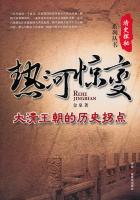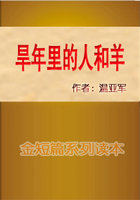He should have considered,that it is not easier to him to turn the Law into a Castle,than it is to the imaginations of impoverished suitors to people it with Harpies.He should have thought of the den of Cacus,to whose enfeebled optics,to whose habits of dark and secret rapine,nothing was so hateful,nothing so dangerous,as the light of day.
15.III Comm.322.It is from the decisions of Courts of Justice that those rules of Law are framed,on the knowledge of which depend the life,the fortune,the liberty of every man in the nation.Of these decisions the Records are,according to our Author (I Comm.71)the most authentic histories.These Records were,till within these five-and-forty years,in Law-Latin:a language which,upon a high computation,about one man in a thousand used to fancy himself to understand.In this Law-Latin it is that our Author is satisfied they should have been continued,because the pyramids of Egypt have stood longer than the temples of Palmyra.He observes to us,that the Latin language could not express itself on the subject without borrowing a multitude of words from our own:which is to help to convince us that of the two the former is the fittest to be employed.
He gives us to understand that,taking it altogether,there could be no room to complain of it,seeing it was not more unintelligible than the jargon of the schoolmen,some passages of which he instances;and then he goes on,`This technical Latin continued in use from the time of its first introduction till the subversion of our ancient constitution under Cromwell;when,among many other innovations on the body of the Law,some for the better and some for the worse,the language of our Records was altered and turned into English.But at the Restoration of King Charles,this novelty was no longer countenanced;the practisers finding it very difficult to express themselves so concisely or significantly in any other language but the Latin.And thus it continued without any sensible inconvenience till about the year 1730,when it was again thought proper that the Proceedings at Law should be done into English,and it was accordingly so ordered by statute 4Geo.II.c.26.
`This was done (continues our Author)in order that the common people might have knowledge and understanding of what was alleged or done for and against them in the process and pleadings,the judgment and entries in a cause.Which purpose I know not how well it has answered;but am apt to suspect that the people are now,after many years experience,altogether as ignorant in matters of law as before.'
In this scornful passage the words noveltydone into Englishapt to suspectaltogether as ignorantsufficiently speak the affection of the mind that dictated it.
It is thus that our Author chuckles over the supposed defeat of the Legislature with a fond exultation which all his discretion could not persuade him to suppress.
The case is this.A large portion of the body of the Law was,by the bigotry or the artifice of Lawyers,locked up in an illegible character,and in a foreign tongue.The statute he mentions obliged them to give up their hieroglyphics,and to restore the native language to its rights.
This was doing much;but it was not doing every thing.Fiction,tautology,technicality,circuity,irregularity,inconsistency remain.But above all the pestilential breath of Fiction poisons the sense of every instrument it comes near.
The consequence is,that the Law,and especially that part of it which comes under the topic of Procedure,still wants much of being generally intelligible.The fault then of the Legislature is their not having done enough.His quarrel with them is for having done any thing at all.In doing what they did,they set up a light,which,obscured by many remaining clouds,is still but too apt to prove an ignis fatuus:our Author,instead of calling for those clouds to be removed,deprecates all light,and pleads for total darkness.
Not content with representing the alteration as useless,he would persuade us to look upon it as mischievous.He speaks of `inconveniences'.What these inconveniences are it is pleasant to observe.
In the first place,many young practisers,spoilt by the indulgence of being permitted to carry on their business in their mother-tongue,know not how to read a Record upon the old plan.`Many Clerks and Attornies',says our Author,`are hardly able to read,much less to understand a Record of so modem a date as the reign of George the First.'
What the mighty evil is here,that is to outweigh the mischief of almost universal ignorance,is not altogether clear:Whether it is,that certain Lawyers,in a case that happens very rarely,may be obliged to get assistance:
or that the business in such a case may pass from those who do not understand it to those who do.
In the next place,he observes to us,`it has much enhanced the expense of all legal proceedings:for since the practisers are confined (for the sake of the stamp-duties,which are thereby considerably increased)to write only a stated number of words in a sheet;and as the English language,through the multitude of its particles,is much more verbose than the Latin;it follows,that the number of sheets must be very much augmented by the change.
I would fain persuade myself,were it possible,that this unhappy sophism could have passed upon the inventor.The sum actually levied on the public on that score is,upon the whole,either a proper sum or it is not.If it is,why mention it as an evil?If it is not,what more obvious remedy than to set the duties lower?
After all,what seems to be the real evil,notwithstanding our Author's unwillingness to believe it,is,that by means of this alteration,men at large are in a somewhat better way of knowing what their Lawyers are about:and that a disinterested and enterprising Legislator,should happily such an one arise,would now with somewhat less difficulty be able to see before him.















